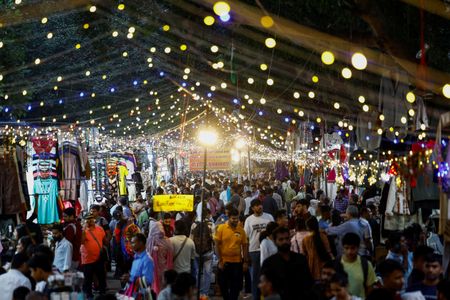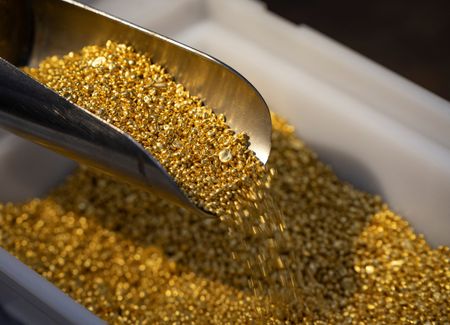By Nidhi Verma and Alasdair Pal
NEW DELHI (Reuters) -India will study the impact of Western sanctions against Russia while devising a payment mechanism to settle its trade with Moscow, the finance ministry said on Thursday.
Russia invaded Ukraine on Feb. 24 in the biggest attack on a European state since World War Two, prompting a barrage of sanctions that have limited Russia’s ability to do business in major currencies and hit several of its banks and state-owned enterprises.
“We will await details of any unilateral sanctions. The exact details to examine their impact on our economic exchanges with Russia,” ministry spokesperson Arindam Bagchi told a news conference.
Russia’s exported $6.9 billion worth of goods to India in 2021, mainly mineral oils, fertilisers and rough diamonds, while India’s exports totaled $3.33 billion, mainly pharmaceutical products, tea and coffee.
Bagchi said a number of countries mainly in Europe were buyers ofRussian oil and India, the world’s third biggest oil importer and consumer, was always exploring all possibilities in the global energy markets to meet its oil demand.
India covers only a fraction of its oil needs with imports from Russia and is exploring trade settlement mechanisms including using Indian currency or rupee-rouble system as Moscow offers crude and other commodities at a discounted rate.
Bagchi said that while India had a rupee rouble exchange mechanism he was not sure if it would be used or remained feasible in the light of sanctions.
India has called for an end to violence in Ukraine but refrained from outright condemnation of Russia, with which it has long-standing political and security ties.
Under pressure from sanctions, many importers have decided to shun trade with Moscow, depressing its crude to record discount levels, which prompted Indian companies to step in.
Indian Oil Corp., the country’s top refiner, recently ordered 3 million barrels of Russian oil through a tender while Hindustan Petroleum Corp has booked 2 million barrels for May loading.
(Reporting by Nidhi VermaEditing by Tomasz Janowski)










